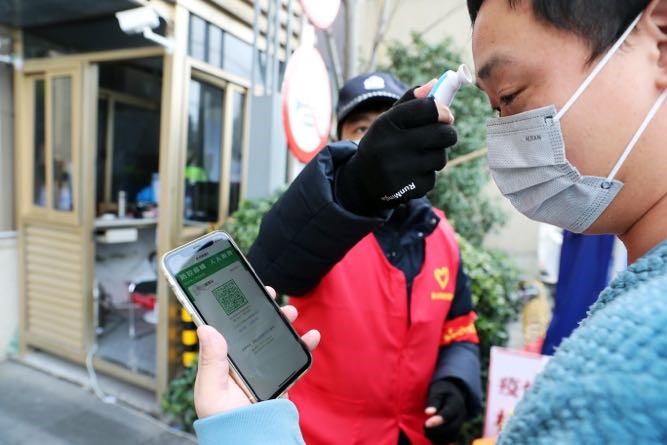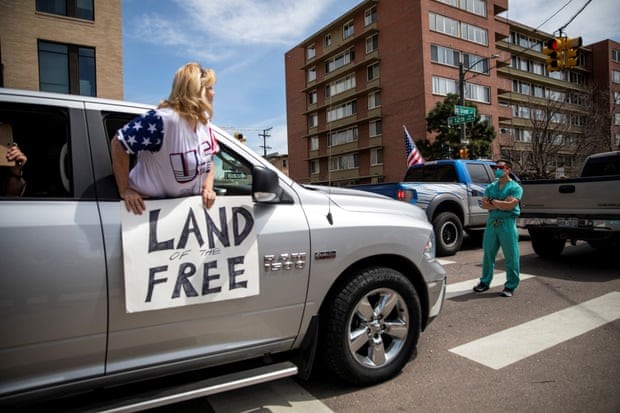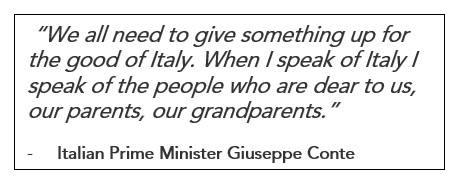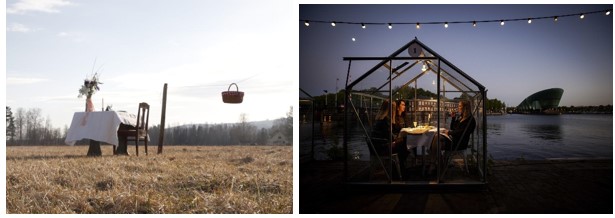
Prior to 2020, we’ve become accustomed to hearing about global divisions and conflict, demonstrating our differences as human beings. Over the last few months, the collective endurance of coronavirus has been a stark reminder that we’re actually all in this together and as we’ve all heard so often – COVID-19 does not discriminate. It has passed through country to country, leaving an almost universal path of human suffering in its wake.
From a cultural angle, it’s interesting to see how each country has reacted differently to the crisis. The way the virus has spread and its symptoms has largely stayed the same, but how cultures have responded to the pandemic can be tied to the deep-rooted cultural beliefs, behaviours and attitudes of each country.
These cultural biases can be seen in how governments have implemented lockdowns, how political leaders have communicated messages, and in the way, consumers have responded to the restrictions placed on their way of life.
Here we explore some fascinating cultural observations through our Cultural Clarity perspective which seeks to understand what drives local consumers to act and behave in certain ways.
The cultural clash between the collective good vs. individual liberty
Perhaps the clearest of cultural contrasts throughout this pandemic is how collectivist and individualistic cultures have reacted. Even the concept of wearing a mask tells us a lot – while those in the East typically see a mask as containing their own germs and protecting people, those in the West view it as a tool for protecting individuals against the germs of others.
Looking more closely at this, China, is a highly collectivist culture that places importance on Confucius values where each person has a role to play in the progression and upkeep of a harmonious society. Combined with a top-down government structure, measures like a strict lockdown and a track and trace system that relies on personal information and surveillance, have been met with little resistance. People here are familiar with the concept of foregoing their individual rights for something bigger; similarly, in a culture where ‘saving face’ is fundamental, people are willing to follow the rules, and in some extreme cases report others for not doing so.
Caption: QR code tracking system being employed in China to monitor civilian movement to keep the virus at bay.
The US on the other hand, is the most individualistic country in the world, where the emphasis is on freedom for all and forging your own path in life. As the virus developed in the US (and continues to do so), many Americans have struggled with the concept of social distancing for the greater good and safety of society, when balanced against the need for personal liberty and financial progression.
Being able to keep people indoors and to temporarily put the brakes on a fast-paced daily life has been a huge challenge in the US compared to China, despite both countries sharing the same zeal for economic progression. This is illustrated most clearly in how local governments were able to independently implement their own response to the crisis, and images of packed beaches and defiant spring breakers were soon circulating around the world. At their ‘peak’, Trump even called upon some states to protest against lockdown measures, leading to a series of ‘Stand for Freedom’ anti-lockdown rallies.
Caption: Protests against lockdown measures in the US.
Closely-knit cultures seeking to return to their vibrant way of life
Not all cultures in the West are as individualistic as the US. Italy and Spain are more collectivist in their outlook, valuing the concepts of family and religion as the backbone of their way of life. These countries have been hit particularly hard by COVID-19, but what they have in common is how closely-knit their societies are, often with multiple generations living together under the same roof – for example, the average age for young adults to move out of the family home is 29.5 and 30.1 in Spain and Italy, respectively.
Combined with an ageing population, these two countries have been left particularly vulnerable to the virus, while also devastating their way of life, as these close-knit families are forced apart. Similarly, beyond the immediate family, these cultures are built on connections with the wider community, with plazas and piazzas being the ‘beating heart’ of social interactions and activities.
During lockdown, there were countless heart-warming stories of families and neighbours coming together to re-create this collective spirit from their balconies – including everything from music and dancing, to socially-distanced movie streaming and aperitifs.
Caption: Local residents serenade neighbours from their balcony during the height of lockdown in Italy. While Madrid’s mobile cinema screened films for people to watch from their balconies.
Egalitarian societies fostering individual responsibility and creativity
Another interesting angle is how countries that strongly value egalitarian, liberal principles have responded to the pandemic – where individual responsibility is at the core of their ethos.
Despite their proximity to other hard-hit European countries, the Netherlands and Sweden adopted very unique strategies to the pandemic. Instead of a formal lockdown, their governments called on citizens to take individual responsibility for social distancing, with considerably looser restrictions than their neighbours. In his first address to the nation, the Dutch PM Mark Rutte described the Netherlands as “a grown-up country”, where “people are glad that they are treated as adults, not as children”. What followed was more of an “intelligent lockdown” where some restrictions were in place, but social distancing and the closure of ‘non-essential’ businesses remained largely at the discretion of the Dutch people.
In Sweden, the lockdown has been even more laid back as bars, restaurants, gyms and borders have remained open. With a belief in civil trust and individual autonomy deeply baked into Swedish culture, here there has been a mutual understanding that people should behave in a sensible way and respect others. Even as the global press have been quick to criticise this strategy, polls indicate that Swedes are supportive of this kind of approach with two thirds believing the government has handled the pandemic well.
As many spaces remain open for business in both countries, it has encouraged people here to think innovatively about how to trade in a more responsible way, such as socially-distanced bars and restaurants.
Caption: New restaurant innovations are emerging to allow consumers to dine at a distance. A remote restaurant in a field in Sweden and greenhouse dining in Amsterdam.
Informal economies where desperation is driving discontent and a survival mentality
Moving away from Europe where many have come through the peak, it is an entirely different situation in Latin America where the virus has become a class issue, highlighting huge wealth disparities. For example, in Mexico and Brazil, informal employment represents 56% and 37% of the population, respectively – and in countries where crime, corruption and low wages are rife, this is often the only way for people to make enough of a living for themselves and their families.
Strict lockdown measures have been exceptionally challenging to implement in these markets as those informally employed are unable to seek support from the state. As a result, many are faced with the unprecedented situation of risking their health to continue to work and feed their families, while those who can afford to, are calling for stricter lockdown measures.
Guidance from their leaders has lacked clarity and consistency as they weigh up the impact of a lockdown on the national economy, as well as the livelihoods of informal workers – all of this is fuelling an atmosphere of desperation as the virus continues to spread, sparking nationwide protests and discontent.
Caption: Favela communities in Brazil being trained to distribute essential supplies. In Mexico, one street vendor’s sign that reads ‘Coronavirus won’t kill me, hunger will’.
As the situation continues to worsen, many are taking matters into their own hands, rather than waiting for political leaders to act. In Brazilian favelas for example, locals are electing and training “street presidents” to enforce good practices, and are even hiring their own ambulances to transport the sick. Another consequence of this government inaction is people seeking help and order from other areas of societies such as charities, national celebrities and even drug gangs.
What can we learn from all of this?
As many countries begin to emerge from their ‘peak’, reflecting on these unique cultural responses is important for understanding, and predicting how consumers around the globe might respond in the aftermath of the pandemic.
There are going to be universal difficulties that we’ll also experience together in defeating this virus, but being able to understand the unique challenges that people face in their local markets is key to being able to connect with them during this difficult time, and in the months or years of recovery to come.
Our Cultural Clarity approach takes an anthropological lens to understanding local markets by exploring the deep-rooted values, beliefs and attitudes, as well as the market shifts that challenge the status quo and spark new trends and needs. Through exploring these angles, we help our global clients better understand their local consumers, ultimately allowing them to unlock commercial opportunities for success.
Source list:
https://www.cam.ac.uk/stories/wintoncovid1
https://www.futurity.org/covid-19-culture-history-2318752/
https://www.nytimes.com/2020/05/03/world/asia/coronavirus-spread-where-why.html
US and China sources:
Italy & Spain Sources:
http://www.bbc.com/travel/story/20200325-italys-inspiring-response-to-the-coronavirus
https://www.wsj.com/articles/family-is-italys-great-strength-coronavirus-made-it-deadly-11585058566
https://www.thelocal.it/20170505/the-average-italian-wont-leave-home-until-age-30
https://www.weforum.org/agenda/2020/03/coronavirus-locked-down-italy-urban-space/
https://www.nbcnews.com/news/world/italy-made-its-own-entertainment-coronavirus-lockdown-n1161711
Netherlands & Sweden sources:
https://qz.com/1842183/sweden-is-taking-a-very-different-approach-to-covid-19/
https://www.economist.com/europe/2020/04/04/why-swedes-are-not-yet-locked-down
Mexico and Brazil sources
https://www.worldatlas.com/articles/15-countries-with-the-highest-rates-of-informal-employment.html
https://www.bbc.co.uk/news/world-latin-america-52137165
https://www.dw.com/en/instagram-star-helps-feed-mexicos-needy/av-53627491
https://www.ft.com/content/aaef1591-2fc5-4e6f-ab84-0e83b5a146ca






